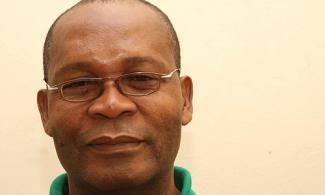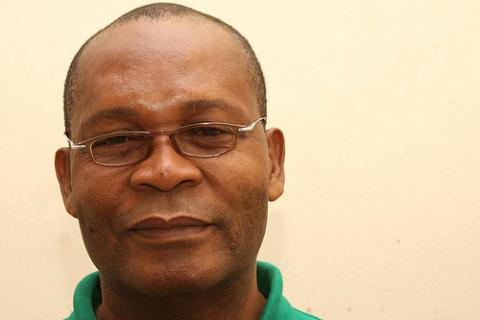
Now the outcome of the 2015 elections has forced the Igbo to be in the opposition. But will the Igbo play opposition politics in Nigeria and hold on to it at least in the next 10 years just to surprise people like us who think it is not possible? Can Igbo shame critics and tell them that the spoils of office and love for money will not allow them to play opposition politics? Can the Igbo make history by choosing to suffer a little in other to be relevant again in Nigerian politics? Can the Igbo show other Nigerians for once that they too can withstand the pressure of being in the opposition for a while?

I want the Igbo nation, where I come from, to play opposition politics in Nigeria at least for the next ten years so that the world will take them serious once again in matters of Nigerian politics. In the first Republic, the Igbo-dominated NCNC formed an alliance with the northern-based NPC to form a government in the center. In the Second Republic the Igbo-dominated NPP again teamed up with the NPN to form the national government in the center. In the third Republic during the NRC-SDP era, MKO Abiola won the election fair and square on the platform of the SDP but the majority of the Igbo, led by the late Odumegwu Ojukwu, (Ikemba Nnewi) the late Evans Enwerem, and Okwesilieze Nwodo, teamed up with prominent Igbo and even some prominent Yoruba leaders to support IBB, Shonekan, and Abacha to sustain the annulment of that election. Again, for 16 years the PDP was in power in Nigeria, and the Igbo was with the PDP.
Now the outcome of the 2015 elections has forced the Igbo to be in the opposition. But will the Igbo play opposition politics in Nigeria and hold on to it at least in the next 10 years just to surprise people like us who think it is not possible? Can Igbo shame critics and tell them that the spoils of office and love for money will not allow them to play opposition politics? Can the Igbo make history by choosing to suffer a little in other to be relevant again in Nigerian politics? Can the Igbo show other Nigerians for once that they too can withstand the pressure of being in the opposition for a while?
Can the Igbo demonstrate capacity and capability now by working with South-South, the North, and other Nigerians to rebuild the PDP, even if it takes 20 years? Will the Igbo jettison the love to support any government in power to redeem its battered image of playing Ugba and Okpoloko politics? Can the Igbo do this for me and other Igbo like me who feel ashamed that we must support any government in power in order to survive? When did the Igbo cease to be a proud people? Did we not fight a civil war for three years with empty stomachs? Did we not prove to the world that we are strong men and women in those three long years?
The Yoruba nation I know has been in the opposition even since the inception of Nigeria and yet they are not the worst in Nigeria. After the annulment of the June 12, 1993, presidential elections won by Moshood Abiola, the powers that be tried to console the Yoruba by appointing Ernest Shonekan the head of the interim government. Did Yoruba accept Shonekan? No, they did not. They did not come out on the streets with Gbedu Drums to celebrate Yoruba and Chief Shonekan. Yoruba proudly told the powers that be that you can only be the Head of State in Nigeria through two methods: either through an election or through a successful coup d’état. In the case of Shonekan, he did not ascend to power through either of the above processes. He was therefore rejected by the Yoruba. Now, if it were the Igbo, would they have reasoned this way? I doubt it. In the struggle for June 12, Abiola was put in detention, and his wife killed. Several Yoruba people were in detention and some hounded abroad. Abiola was eventually killed. But did the Yoruba go to war or resort to self-determination? No, they did not. They fought back using common sense and the power of ideas.
In 1998 when the presidency was zoned to the South-West because the late MKO Abiola has paid the supreme price, the Yoruba preferred Olu Falae but the powers that be forced Obasanjo on Nigeria. Now did the Yoruba accept Obasanjo because he is a Yoruba man? They did not. This unique race rejected Obasanjo for the eight years he was in office, from 1999 to 2007. To date the Yoruba still believe that Obasanjo wasted their eight years. OBJ was rejected even in his own ward, in his local government, and in the whole of the Western Region. That is the Yoruba nation for you. Can the Igbo do this? I doubt it. After the 2003 elections, the PDP stole all the states in the South-West, leaving only Lagos because they were afraid of the trouble Lagosians will give them. The former Governor of Lagos State, Asiwaju Bola Ahmed Tinubu, fought back like a wounded lion with his committed associates to reclaim almost all the States in the South-West. He did not stop there; he spread his intimidating political tentacles across Nigeria, forming alliances across building networks and bridges, and the result is what we saw on Saturday, March 28, and April 11, 2015. Now, can any leader in the South-East achieve this feat? Where is the character? Where is the courage? Where is the wisdom and understanding? Where is the common sense? Where is the discipline? Where is the capacity and capability?
After the 2015 elections, where the Igbo lost their deposit by putting all their eggs in one basket, many Igbo leaders claimed that the Igbo made the right political choices given the circumstances on the ground then. Dr. Ebigwe, Senator Ekweremadu, Ken Nnamani, Professor Anya O. Anya, Dr. Alex Ekwueme, Peter Obi, Ohaneze, Aka Ikenga, Ndigbo Lagos, MASSOB, and even the Igbo in diaspora spoke with one voice in saying the Igbo voted well by pitching their tent with Jonathan. Yes, the Igbo have said they voted right, but in actions and in deeds, they have been busy looking for ways to sneak into the APC.
After President Buhari trounced Jonathan on March 28th, 2015, panic gripped Igbo politicians, businessmen and women and the traders. They have been running helter-skelter, looking for where to seek refuge. I remember a night in the house of a very successful Igbo trader in Ikoyi shortly after the presidential election, when it became obvious that PMB had carried the day. They gathered to contribute money to support to the APC. Even those who traveled home for the Easter holiday donated money from the East just to belong. I felt ashamed that my people couldn’t defend their honor and integrity even in times of trouble.
On Saturday, July 25th, 2015, a group who worked against APC in Lagos called Igbo United Political Forum organized a reception to honor Governor Rochas Okorocha. Behind the smokescreen was an attempt to sneak through the back door to the APC, having missed the front door on March 28th and April 11th, 2015. The organizers reaped what they sowed, as all the APC leaders they invited stayed away. They licked their wounds and went home to cry. Time and space will not permit me to recall various moves our people have made to find their way to the APC. Those who are still very angry about the colossal loss have pitched their tent with the Biafra mantra. When we lose out in national politics as a result of myopic and timid political thinking and calculations, the next move is to resort to ethnic politics. Nobody is deceived.
My humble submission is that the Igbo should learn how to play opposition politics, and the time to do so is now. The Igbo will not die if they are not in the APC or part of the government in power. After all, the Yoruba have been in opposition for a long time—since the 60s, and still they have not perished. Let the Igbo work with other PDP leaders across Nigeria to start strategizing to reposition, rebrand, and rebuild the PDP. This is the way to political rebirth and redemption. If you have many bushes to clear, you have to sharpen your knife very well.
Joe Igbokwe, Lagos